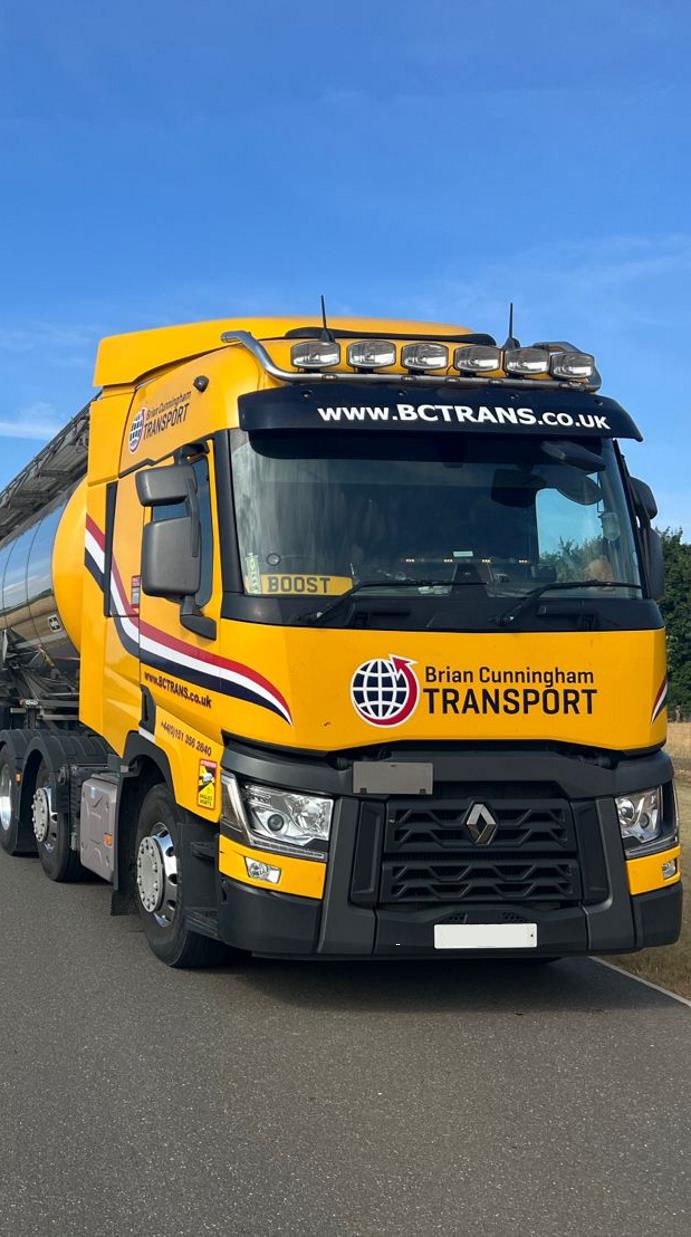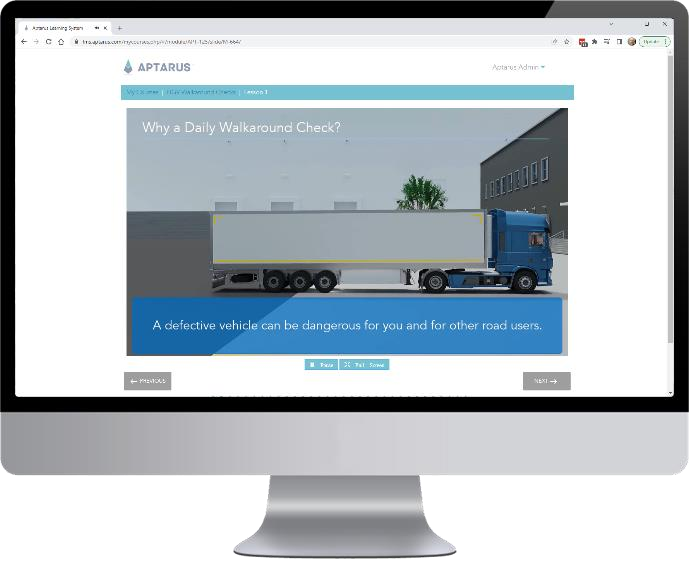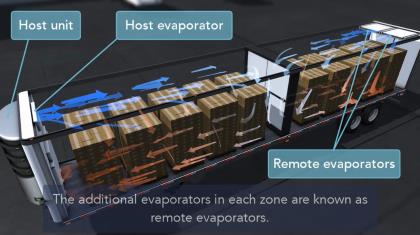
Attracting and retaining driver talent is a huge issue for transport companies in
Ireland and the UK.
The average age of HGV drivers in Ireland is 48 years. In the UK, the average age
of HGV drivers is 53 years, with just 1 in 50 aged under 25. There is a lack of
younger drivers entering the logistics industry, resulting in a shortage of
commercial drivers in Ireland and the UK.
There is currently a shortage of 4,000 HGV drivers in Ireland. In the larger UK
market, the situation is even worse with a shortage of 100,000 commercial drivers
in the logistics sector. This ongoing shortage results in difficulties recruiting new
drivers, and also difficulties retaining existing drivers for many transport
companies.
Recent surveys have shown that attracting and retaining drivers is the number one
issue facing many transport companies at the moment.
A good online training system can help to attract new driving talent to your
organization. In addition, a well-run online training program can help to retain
your existing driver team. Read on to find out how!

Source:
FTAI
An Online Training Approach
A good online training system can not only help to attract new driving
talent to your organization – it can help to retain your existing drivers too.
Here we present the key attributes of an online training system can that
assist in attracting and retaining driving talent:
Maximum Flexibility
A good online training system should allow your drivers to learn in a
way that suits them. This includes the ability to learn anytime, anywhere,
on any device, and in their preferred language.
Data-Driven
Learning assignments should be based on driver behaviour, and not
assigned arbitrarily. Drivers will accept assignments based on their actual
driving behaviour, so it is important that your online training system use
actual metrics from telematics, camera systems, etc. to assign training.
Drivers should be able to see their own scores in the online system.
In addition, goals must be achievable and so must be customised for
each individual driver. This results in better engagement, as a driver will
not attempt a goal that does not seem feasible.
Onboarding
A good online training system should provide a professional
introduction to your company culture and values. Scheduled
enrolments will allow new drivers to ease into the learning culture
and not feel overwhelmed initially. Digital certification and/or
badges and awards can help new drivers to feel a sense of
achievement early on in the learning process.
Remember, driver turnover is highest in the first six months of
employment, so getting the training right can make a big difference.
Source:
Max Farrell, WorkHound
Learning Path
Your online training system should provide a customised learning path for each
individual driver. This allows for training at their own pace, and is far more likely
to result in a satisfied workforce. In addition to covering the fundamentals of a
particular job function, a good online training system should provide
opportunities for learning progression through more advanced courses and
content.
Unified Platform
A good online training system should support multi-modal training. For
example, it should allow for trainer-led sessions, adding training records from
face-to-face training, importing training from third-party providers, and so on.
This will provide a unified training platform to capture all training and learning
events for each driver.
Bonus Assistance
Many transport companies operate bonus schemes for their drivers, based on
metrics such as fuel efficiency, safety, and performance. A good online training
system can help drivers to achieve their bonuses by providing content and
training which improves driver behaviour in relevant areas, helping them to
achieve their targets.

Source:
Pro-TREAD
Driver Engagement
Drivers work remotely, away from the company premises for the majority of their
working hours. Making drivers feel part of the team can be difficult, and this results
in many drivers feeling undervalued and unappreciated. A good online learning
system should include regular communications such as weekly briefings, messages
of encouragement and praise, and include customised content for each driver.
Your online training system should be customisable to promote your company
branding and logo, so your drivers always feel like they are connecting with the
company when they undertake any online training.
Company Culture
Many drivers are concerned about the Environmental, Social, and Governance
(ESG) credentials of their employer. Adopting an online learning system that helps
to improve fuel economy and driver safety can help to demonstrate your
company’s ESG commitments. In addition, online training can reduce energy
consumption by 90% compared to classroom-based training, which aligns with
corporate ESG goals.
Technology Adoption
Older drivers may not always be comfortable with modern computer technology
such as in-cab devices, cloud-based applications, etc. The use of a user-friendly
online training platform can be an opportunity to help your non-computer
experienced drivers become more comfortable with newer technologies

Source:
TUD Study
When it comes to driver training, it’s best to not rely on just one approach.
A multi-modal approach to solving the training issue is more effective to
gain traction and buy-in from your team.
Online training is good for figuring out the “why” part of the job. It is an
ideal solution for covering introductory topics, rolling out new technology,
or a new concept. It’s also useful to cover the human resources or
regulatory side of trucking.
A good online training system will make your trainers more efficient, taking
care of repetitive manual tasks and freeing up their time for more highimpact tasks.
Online training can reduce energy consumption by 90% compared to
classroom-based training – a useful benefit for energy reduction goals.
Online training typically requires 40-60% less time that learning the same
material in a classroom.

Source:
Research Institute of America
| Maximum Flexibility |  |
| Data-Driven |  |
| Onboarding |  |
| Learning Path |  |
| Unified Training |  |
| Bonus Assistance |  |
| Driver Engagement |  |
| Company Culture |  |
| Technology Adoption |  |

"Very informative."
"Found this a good module on the importance of keeping food at the right temperature during transportation."
"Very helpful information which can help to avoid accidents and hazards."
"I found this part of the module very informative."
"Very interesting. I appreciate it."
"Great info."
"Very useful information."
"Absolutely brilliant app."


